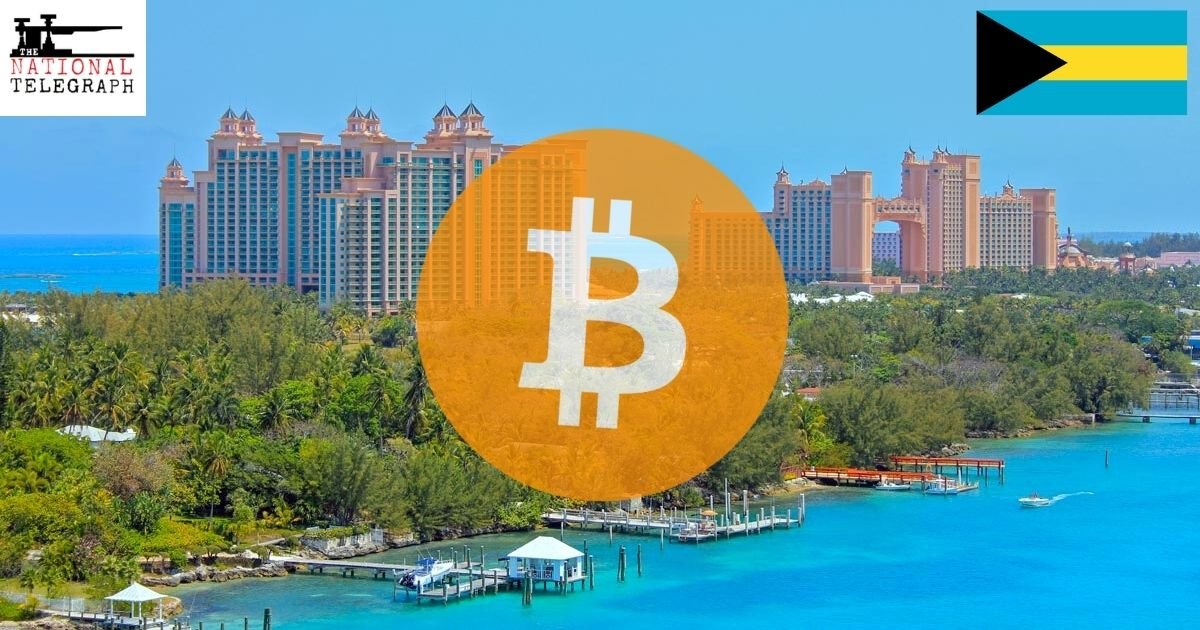Written By B.J. Dichter, Posted on April 24, 2022

On Apr. 21 it was announced The Bahamas would allow citizens to pay taxes using Bitcoin and other digital assets.
This announcement is noteworthy for several reasons, one being the unprecedented vagueness The Bahamas government uses to describe ‘digital assets’ that could be used to pay for taxes in their ‘The Future of Digital Assets in The Bahamas’ whitepaper, which states their goal is to:
12.1 … expand digital asset skills and education opportunities… start enabling Bahamians’ access to digital assets using B$ [Bahamian fiat currency], and enable payment of taxes using digital assets.
The Bahamas is not just going to allow for Bitcoin, but payment of taxes using Altcoins. The wording is so vague here, potentially what’s on the table is The Bahamas might even be allowing for payment of taxes using NFTs, which is a bizarre idea, difficult to even imagine what would look like in practice.
Many cryptocurrencies and NFTs are so unstable in value that The Bahamas government must obviously want payment in the most stable and secure currency, which is Bitcoin.
It’s also clear The Bahamas is not going the Bitcoin maximalist route of countries like El Salvador. The Bahamas has historically been a hub for high finance, and the nation is clearly going to try and maintain this status in this new era, and therefore isn’t going to turn away non-Bitcoin-related business.
Also significantly, however, The Bahamas is openly pushing the use case for their ‘Sand Dollar’ central bank digital currency (CBDC), as they announced at the same time they were going to streamline Bahamians’ ability to purchase digital assets using the ‘Sand Dollar’ CBDC (Central Bank Digital Currency).
What the Bahamian government pushing their CBDC for the purchase of digital assets will look like in practice is also a bit vague; from the wording of the announcement, it seems like Bahamians will still be allowed to purchase at least some digital assets without converting their Bahamian Dollar into ‘Sand Dollars’ CBDC first.
What is clear is The Bahamian government is going really to push their CBDC hard from now on. The first half of the whitepaper referred to above aggressively lays the groundwork for their CBDC push, and they hit all the propaganda points you’d expect: the recent announcement by U.S President Biden to explore CBDC options, CBDC development and research happening with other central banks of advanced economies, international ‘guidance’ by the FATF on the regulation of cryptocurrencies, etc.
The Bahamas even threw in the old ‘prices are volatile so we need regulation + CBDCs’ argument:
1.3 Volatility in the value of crypto assets remains high, and therefore they are not suitable for all investors. While the opportunity for making money in digital assets is high when prices go up, so too is the risk of suffering losses when prices go down.
All this said, there are significant dangers of CBDCs for numerous reasons, this whitepaper can be read as course correction for the CBDC pushers, and potentially even an admission of failure in some regards.
The Bahamas is a unique example in this area, as they are one of the few nations to have a full, alpha version of their CBDC up and running, their ‘Sand Dollar’ having entered circulation in 2020.
The fact The Bahamas is now trying to piggyback their CBDC on the success and desirability of Bitcoin must be recognized for what it is: the unsurprising failure of a government offering when forced to compete in the free market.
The whitepaper even says as much, when referring to the example set by U.S. President Biden’s directive, which “… clearly indicates the United States intention to explore options for developing its own CBDC and acknowledged that crypto is here to stay.”
Author Honking For Freedom, Podcaster, Speaker, Trucker #FreedomConvoy Spokesperson. #Bitcoin http://HonkingForFreedom.com | http://BenjaminJDichter.com
Hey there You have done a fantastic job I will certainly digg it and personally recommend to my friends Im…